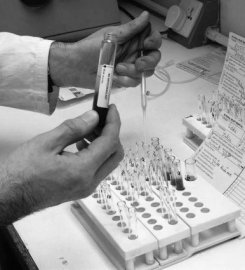 Researchers at Boston University say highly active antiretroviral therapy (HAART) does not completely suppress HIV in the semen of sexually active infected men. The findings, appearing in the journal AIDS, could indicate a transmission risk for men who have sex with men (MSM), who are highly susceptible to HIV infection.
Researchers at Boston University say highly active antiretroviral therapy (HAART) does not completely suppress HIV in the semen of sexually active infected men. The findings, appearing in the journal AIDS, could indicate a transmission risk for men who have sex with men (MSM), who are highly susceptible to HIV infection.
The semen of HIV-infected men is the most common route through which HIV is transmitted in the United States and many other developed countries. HAART, which is the primary treatment for HIV/AIDS, consists of a combination of potent anti-HIV drugs, which generally suppresses HIV levels in blood and semen - and HIV transmission to sex partners. But the researchers said that MSM have a high prevalence of sexually transmitted infections which are a risk factor for HIV transmission.
To determine what percentage of sexually active HIV-infected MSM on HAART have HIV in their semen, the research team, headed by Deborah Anderson, recruited 101 HIV infected men from around Boston. They measured levels of HIV in blood and semen, and examined the relationship between HIV in semen and other clinical, behavioral and biological variables.
She reported that 18 percent of the men had HIV in their blood despite being on HAART, and half of these men also had HIV in semen. "It has been shown before that HIV levels in peripheral blood are an important predictor of seminal HIV," explained co-researcher Joseph Politch.
Interestingly, of the 83 men with undetectable HIV in their blood plasma, one-quarter (25 percent) had HIV in their semen. Detection of HIV in semen was strongly associated with high-risk (unprotected) sex behavior, sexually transmitted infections and genital inflammation.
"Genital infections and inflammation are common in HIV-infected MSM that engage in unprotected intercourse, and that these factors can promote HIV in the genital tract of men on suppressive HAART therapy even when HIV is not detectable in blood," concluded Politch. "Men who have sex with men who are at risk for transmitting HIV may believe that they have a low risk based on incorrect assumptions that HAART eliminates HIV from semen."
Related:
Discuss this article in our forum
Improper condom use a global health issue, say medicos
Researchers give thumbs-up to HIV pre-exposure prophylaxis
Internet Sex-Seeking Risks Quantified
Source: Boston University Medical Center

